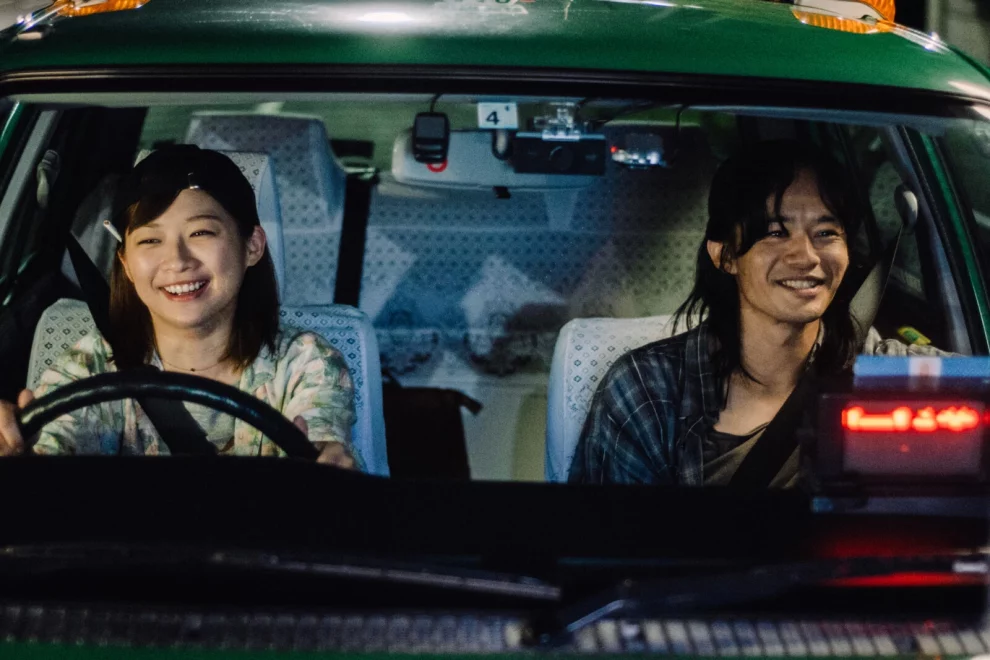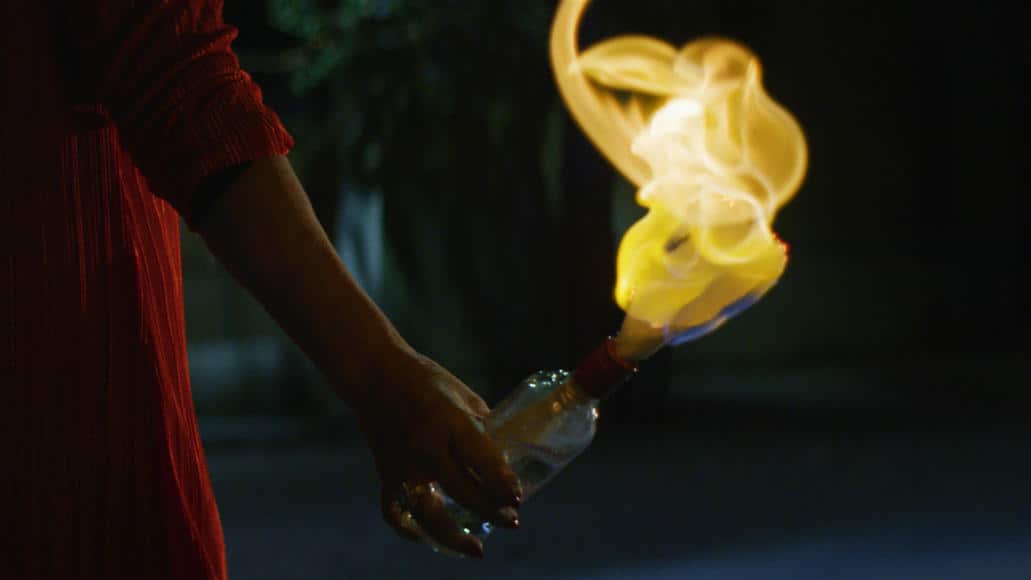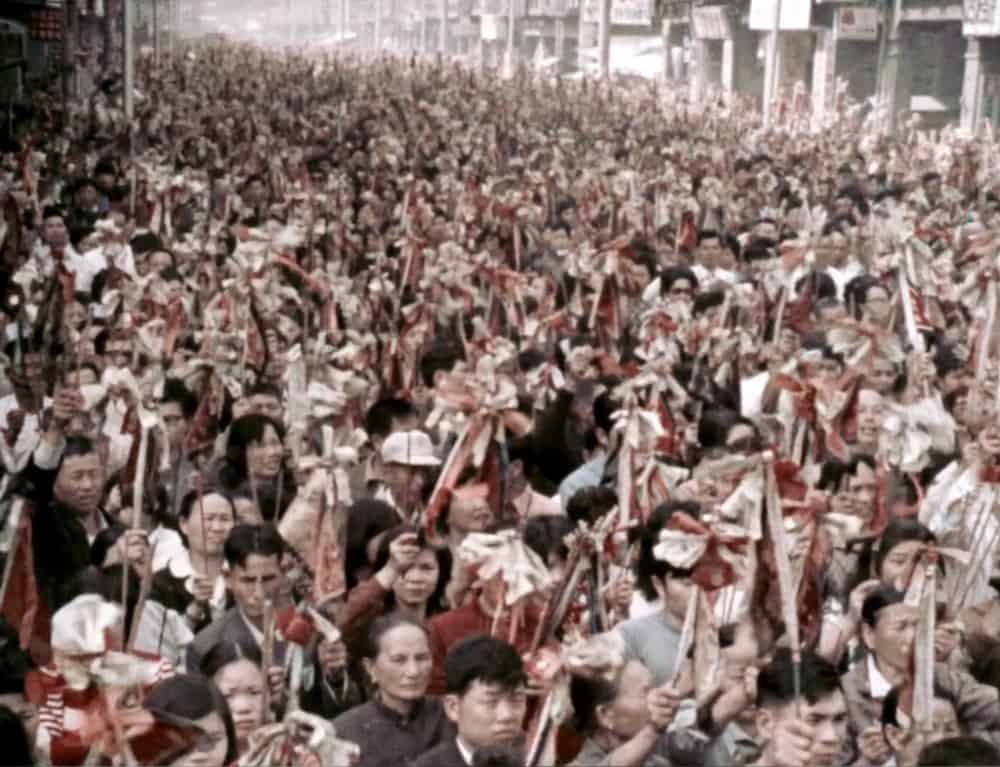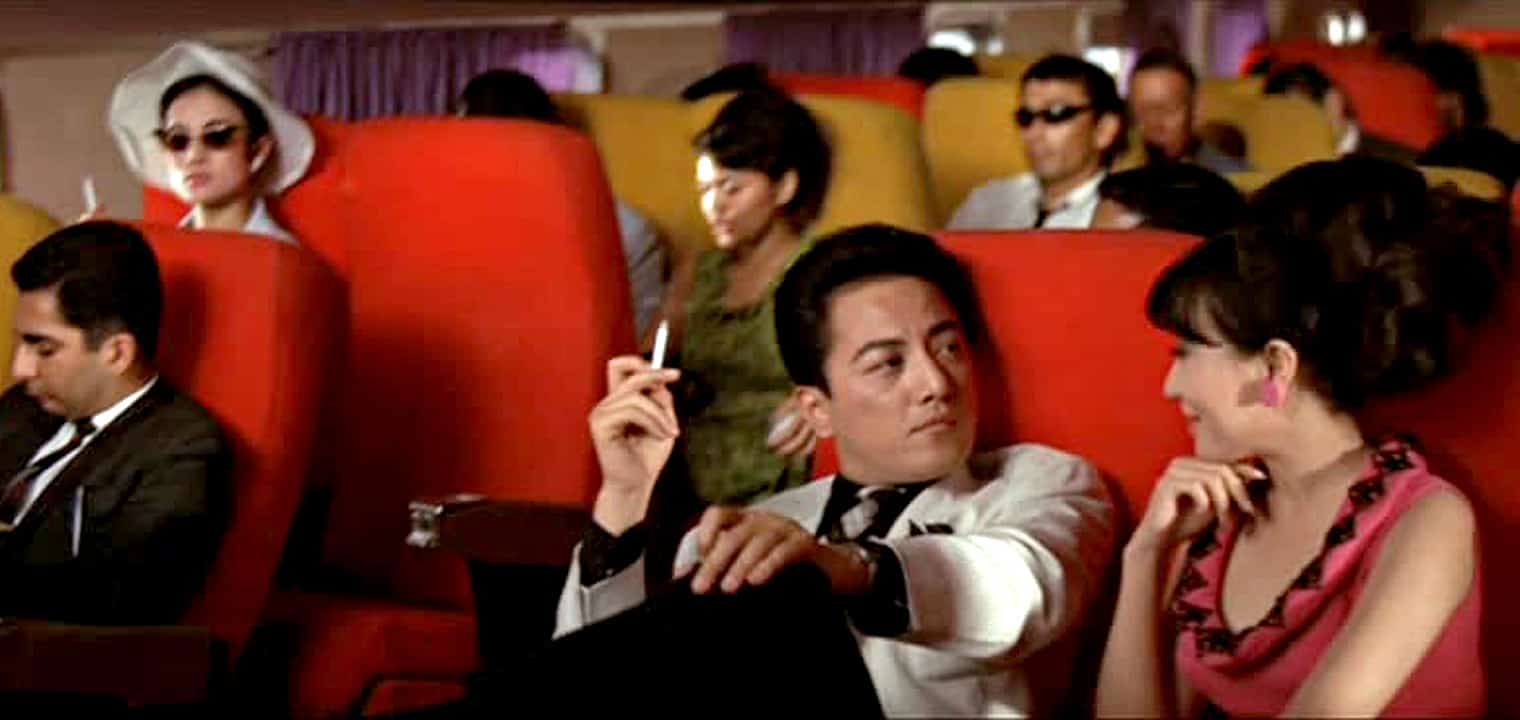Winner of the audience award in last year's Tokyo International Film Festival, “Just Remembering” channels a number of elements from Jim Jarmusch's “Night on Earth” but also includes a very interesting role reversal element and unusual approach to the timeline of the story.
“Just Remembering” is screening at Nippon Connection
Teruo is a former dancer who suffers from an injury on his leg that has forbidden him from dancing, and now works as a light technician for a theater company, although he is not exactly great at his job. Yo is a taxi driver (concluding the role reversal element), and a fan of Winona Ryder's segment in the aforementioned movie, and also Teruo's former girlfriend. Through a series of flashbacks mostly taking place around July 26, Teruo's birthday, their backstory is revealed, as much as the background of a middle-aged man always sitting on a bench nearby the young man's house, waiting for his wife to appear.
The narrative approach Daigo Matsui implements is quite interesting, with the timeline being scrambled, mostly moving backwards, and the sequences with Ito driving various people in her taxi adding social commentary, humor and a welcome relief from a somewhat blunt story, with the plethora of live performances included also moving into this same direction. That the taxi segments are quite different from each other, including adulterous husbands, drunken men, people who want to socialize with the driver etc, works quite well for the movie, intensifying the entertainment it offers while highlighting the work of taxi drivers in Japan in a way that is both realistic and amusing.
The rest of the movie presents a romantic story that moves backwards, as the first encounter of the two protagonists we see leads to a fight, despite the fact that it is evident that they both still have feelings for each other. Through this relationship, Matsui makes a number of comments, mostly focusing on regret, self pity and how perseverance can actually help relationships, with the man in the bench intensifying this aspect even more.
Truth be told, although intriguing, the narrative approach does not work that well, both because it strips the film from the impact a potential ending of the relationship presented in the finale could have, but also because the movie frequently functions like a stage play, with extensive dialogues inside the taxi, mostly between the two protagonists, in a style that definitely “winks” at “Drive My Car”. Takita Ryuchi's editing does good in terms of a relatively slow, in Japanese art house style pace, but the succession of scenes does have its issues.
What essentially “saves” the film, deeming it worthwhile, is the charisma and the acting of the two protagonists, with Sosuke Ikematsu and Sairi Ito giving great performances in highly demanding roles, that have them changing their mentality and their relationship radically, not to mention dancing on occasion. The transformation of Ikematsu from a wallowing man to a happy one is rather rewarding to watch, but the one who steals the show is definitely Ito, particularly in the taxi-customers scenes and even more so, in the moments where she is enjoying a happy, cheerful relationship with Teruo. These scenes are bound to put a smile on any viewer's face, while also highlighting the chemistry of the two in the most eloquent fashion. As usual, the intently bass voice of the petit Ito works wonders for her, especially in her interactions with the customers, in one of the most amusing parts of the movie. Lastly, Masatoshi Nagase's presence rounds an overall great cast, with his usual measured performance being another treat here.
Hiroki Shioya's cinematography captures the many different settings with realism, but his work truly excels in the taxi scenes, particularly in the way he manages to individualize every person inside it, while keeping the focus on Ito. Some quite beautiful scenes, as the one in the aquarium also add to an overall excellent job.
“Just Remembering” has its faults, and the truth is that Matsui's narrative experiment does not work completely. However, there is still a lot to like here, with the movie definitely deserving a watch for the performances alone.

















